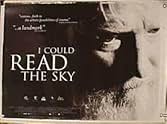Der Film erzählt von den Erinnerungen und dem Verlustgefühl eines irischen Einwanderers, der schließlich als Bauarbeiter in den anonymen Städten Englands landet.Der Film erzählt von den Erinnerungen und dem Verlustgefühl eines irischen Einwanderers, der schließlich als Bauarbeiter in den anonymen Städten Englands landet.Der Film erzählt von den Erinnerungen und dem Verlustgefühl eines irischen Einwanderers, der schließlich als Bauarbeiter in den anonymen Städten Englands landet.
- Regie
- Drehbuch
- Hauptbesetzung
- Auszeichnungen
- 1 Nominierung insgesamt
Rachel Pilkington
- Young Eileen
- (as Rachael Pilkington)
Liam Ó Maonlaí
- Joe
- (as Liam O'Maonlai)
Empfohlene Bewertungen
This is a beautifully made and passionately felt movie, but a harrowing one to watch. I couldn't decide whether it was the director's intention to make the viewer suffer as much as I did while watching it in order to make us feel the main protagonists pain, or if he just lacks a sense of dramatic tension, but it's such a beautiful film visually that I'm willing to give him the benefit of the doubt.
It concerns a man who follows the familiar road from rural Ireland to British building sites. Filmed in a mixture of monologue and POV, it conveys a sense of the alienation and deracination which many people in his position would have felt. At first he seems like a simpleton, but the film's attempts to give him a tragic grandeour aren't entirely successful. The symbolism is often apposite; the scenes of animal slaughter at the beginning give him an earthy quality of which he is robbed by the time he reaches the urban wastelands of the English inner cities where he works.
The film's main weakness is that it's protagonist's monotonous delivery becomes grating after a while. I saw a monologue by African dissident George Serembra that was simaler in many ways to this but was carried by his stylistic variety. By the end of this film I was almost begging the lead character to leave me alone.
For all it's faults, this is a much more honest picture of recent Irish history than most of the Paddywhackery that passes for such in US multiplexes.
It concerns a man who follows the familiar road from rural Ireland to British building sites. Filmed in a mixture of monologue and POV, it conveys a sense of the alienation and deracination which many people in his position would have felt. At first he seems like a simpleton, but the film's attempts to give him a tragic grandeour aren't entirely successful. The symbolism is often apposite; the scenes of animal slaughter at the beginning give him an earthy quality of which he is robbed by the time he reaches the urban wastelands of the English inner cities where he works.
The film's main weakness is that it's protagonist's monotonous delivery becomes grating after a while. I saw a monologue by African dissident George Serembra that was simaler in many ways to this but was carried by his stylistic variety. By the end of this film I was almost begging the lead character to leave me alone.
For all it's faults, this is a much more honest picture of recent Irish history than most of the Paddywhackery that passes for such in US multiplexes.
this solipsistic sludge is littered with cinematic allusion - Murnau, Robert Montgomery, Greenaway, Sirk, Ruiz, Ter(r)ences Malick and Sirk - but, as you would expect from an Irish film, its heart is in literature, the torrential monologue of Molly Bloom, the bleak spurtings of Beckett. The star is even a famous writer, Dermot Healy (his jerky, slashing performancce is the best thing in the film). Like Joyce, the film errs in overrating the complexity of the human brain; at any rate, the synthetic effects, visual treacle and Harp-ad-like music very quickly pall. Then exasperate. Then numb.
Top-Auswahl
Melde dich zum Bewerten an und greife auf die Watchlist für personalisierte Empfehlungen zu.
Details
Zu dieser Seite beitragen
Bearbeitung vorschlagen oder fehlenden Inhalt hinzufügen

Oberste Lücke
By what name was I Could Read the Sky (1999) officially released in Canada in English?
Antwort












